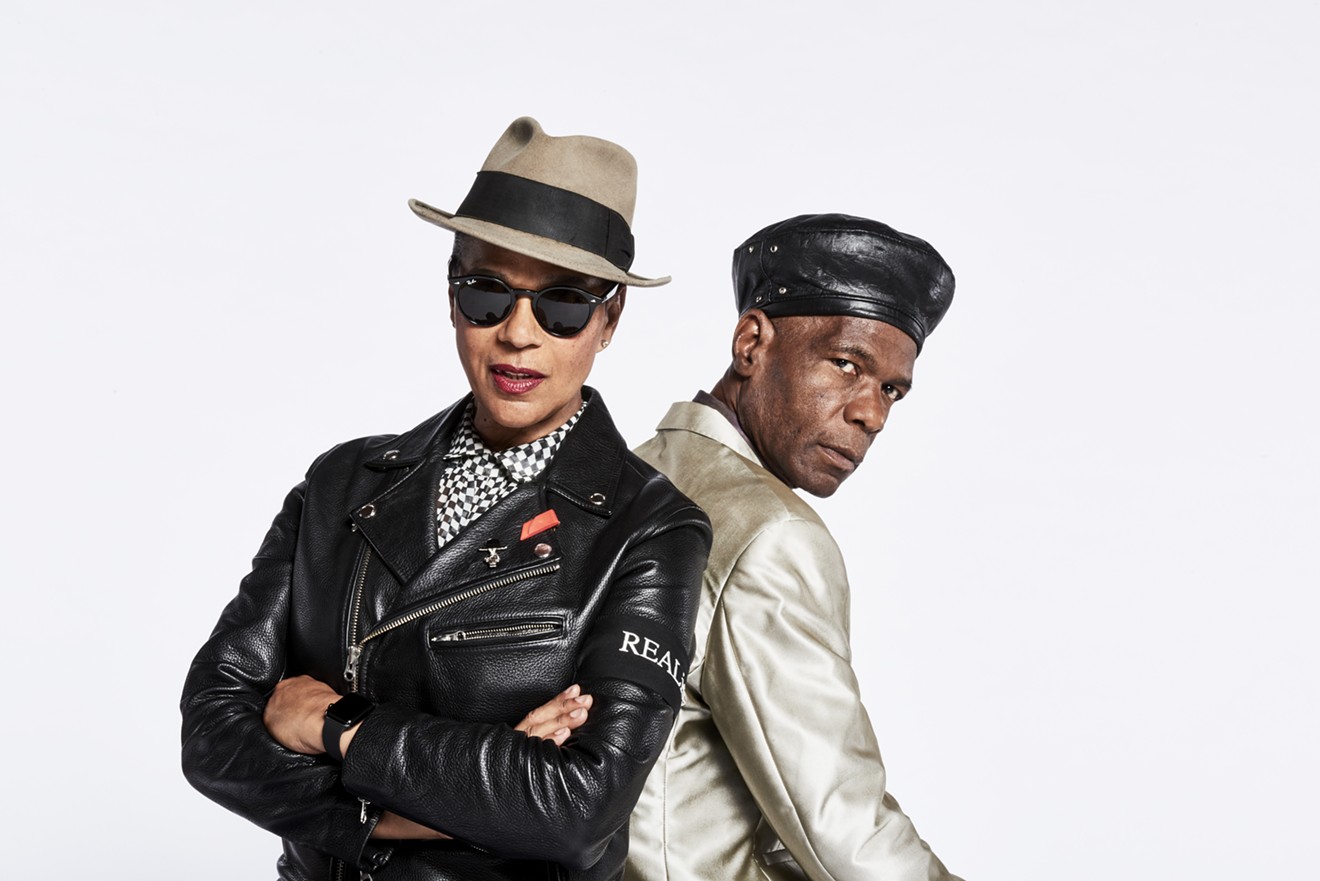During the turbulent late ’70s in England, in the West Midlands postwar industrial town of Coventry, the second wave of ska exploded onto the scene like Motown did in ’60s Detroit. Six local bands would take over the U.K. charts from 1979 through 1983, claiming no fewer than 36 U.K. top 10 singles.
The movement in music, style, and culture embodied a multicultural sensibility and set in motion the now legendary 2 Tone Records label, tours, and much more.
The Specials, Madness, the English Beat, Bad Manners – all paid homage to the uptempo precursor to reggae that ruled Jamaica in the ’60s. It was also something of a boys’ club until one band emerged with a striking lead singer who was part of the movement’s one and only majority-black group. The band was The Selecter, and the singer was Pauline Black.
Despite her androgynous appearance, Black embodied the youthful “Rude Boy” culture and mindset that accompanied ska. Replete with trilby hat, black trousers, loafers, Ben Sherman shirt, and Harrington jacket, Black’s Rude Girl transformation would win over hundreds, as would the all-girl 2 Tone group the Bodysnatchers, formed around the same time.
The Selecter would have four songs reach the U.K. Top 40 all between fall 1979 and summer 1980: “On My Radio,” “Three-Minute Hero,” Missing Words,” and the non-album single “Whispers.” The group’s debut album, Too Much Pressure, would climb to No. 5. Despite this auspicious first release and tours on both sides of the Atlantic, the band was low on list of 2 Tone’s priority.
Searching for more creative freedom and autonomy, they switched to Chrysalis in February 1980. As the band had time to consider expanding the sound for its next album, with new artistic license provided them at Chrysalis, organist Desmond Brown suddenly quit the band, and bassist Charley Anderson was asked to leave shortly thereafter. The two disagreed over adding a New Wave flavor to the reggae-ska style the band had made its own.
Their second album, 1981’s Celebrate the Bullet, was a critical success, but its lyrics, centered on political and social strife, doomed it commercially. Its No. 41 showing and mere four-week stay on the U.K. albums chart made it seem a failure in comparison to Pressure. It was also a victim of bad timing: A month after its February 1981 release, a gunman attempted to assassinate U.S. President Ronald Reagan, making it nearly impossible for a record called Celebrate the Bullet to get radio play.
The group disbanded shortly after, but Black would reform the band several times in the ’90s and 2000s, releasing albums and at one point even touring with No Doubt. Phoenix New Times caught up with Pauline Black, whose latest version of The Selecter still includes fellow original singer Arthur “Gaps” Hendrickson.
Phoenix New Times: As a part of your initial stage persona, you developed what is now called “Rude Girl” style. What makes that look so enduring?
Pauline Black: I don’t really know. I think that it’s just classic, really. It is clean lines. You can’t go wrong with black and white with a little splash of red in there to tell them which political side of the fence that you come down on (editor’s note: in British politics, the color red is linked with the leftist Labour party). What is there not to like?
How difficult was it putting the sophomore release Celebrate the Bullet together and decide to make it already a departure from the first album?
I think more than anything, possibly we matured a little too quickly in retrospect because people really expected to hear an album very much like the first one. I think The Specials had a similar problem between The Specials and More Specials.
The band seemed to somewhat divided on what direction to take on Celebrate the Bullet. Some wanted to go in a trendier, New Wave-experimental route, while others wanted to continue in a more reggae-ish direction. What really happened?
That was certainly how it was seen at the time, and I think that is possibly true. But I think also probably that it was difficult for us in terms of, we had more of a reggae sound than a New Wave pop sound. Trying to amalgamate those two things I think was quite hard.
You left the band in 1982, and before the first of many band restarts you went into acting. You even won awards for your portrayal of Billie Holiday in the stage play All or Nothing at All. What did you learn from that success?
I have lived my life in such a way that things have presented themselves to me that I could do, and I think, “Oh, I’ll have a go at that” ... I was always game for doing that. I learned a lot about myself.
What is in store for you and the band after this latest U.S. tour?
It’s going to be great next year to do the 40th anniversary, and we can cull everything from every album we’ve ever done, to put together a really, really great show. We will probably be doing that in conjunction with Rhoda Dakar (of the Bodysnatchers) because it’s her 40th anniversary, too.
The Selecter. With Rhoda Dakar. 8 p.m. Thursday, November 1, at Valley Bar, 130 North Central Avenue; valleybarphx.com. Tickets are $29.50 via Ticketfly.
[
{
"name": "Air - MediumRectangle - Inline Content - Mobile Display Size",
"component": "18478561",
"insertPoint": "2",
"requiredCountToDisplay": "2"
},{
"name": "Editor Picks",
"component": "16759093",
"insertPoint": "4",
"requiredCountToDisplay": "1"
},{
"name": "Inline Links",
"component": "17980324",
"insertPoint": "8th",
"startingPoint": 8,
"requiredCountToDisplay": "7",
"maxInsertions": 25
},{
"name": "Air - MediumRectangle - Combo - Inline Content",
"component": "16759092",
"insertPoint": "8th",
"startingPoint": 8,
"requiredCountToDisplay": "7",
"maxInsertions": 25
},{
"name": "Inline Links",
"component": "17980324",
"insertPoint": "8th",
"startingPoint": 12,
"requiredCountToDisplay": "11",
"maxInsertions": 24
},{
"name": "Air - Leaderboard Tower - Combo - Inline Content",
"component": "16759094",
"insertPoint": "8th",
"startingPoint": 12,
"requiredCountToDisplay": "11",
"maxInsertions": 24
}
]











